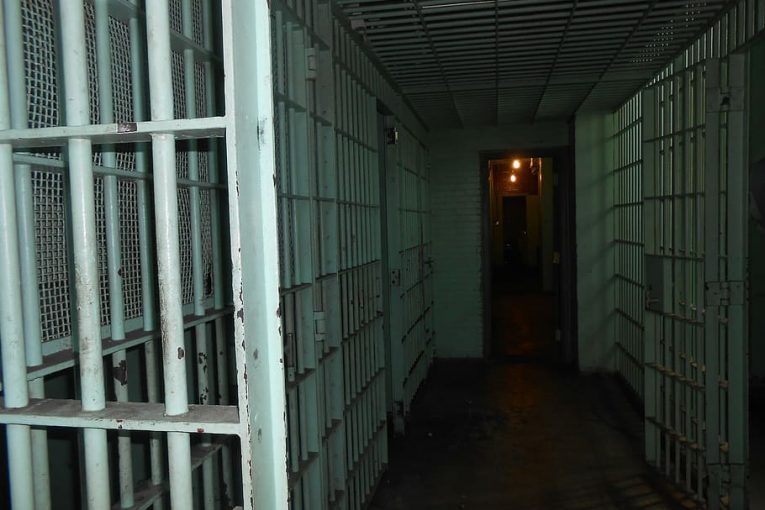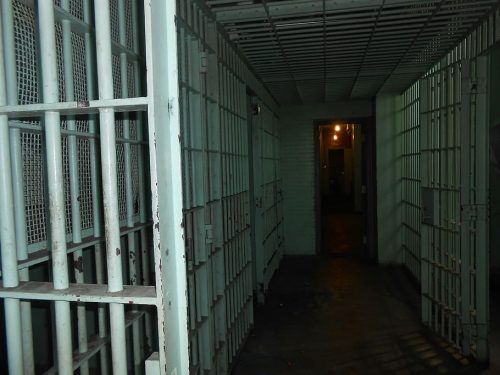

By Rena Abdusalam
EAST HAMPTON, MA – The Prison Policy Initiative, a nonprofit organization oriented on criminal justice reform research, has released a report on parole approval rate across 26 states, finding just six states saw an increase, and almost every surveyed state is now holding fewer parole hearings compared to years prior.
“Earlier this year, Alabama’s Board of Pardons and Paroles made headlines when it denied parole to someone who had died 10 days prior to their parole hearing,” said the nonprofit. “This is just one of many threads in the Alabama parole board’s tapestry of dysfunction.”
According to the report, Alabama, a state performing with the majority vote of their three-person parole board despite having only two members of the board operating for months, is on track for a parole grant rate (which is the percent of parole petitions approved) of only seven percent for 2023.
“This also comes as studies show racial disparities in parole grant rates are widening; for example, non-white people in New York were released at a rate almost 29 percent less than their white counterparts in 2022 (up from a difference of around 19 percent between 2016 and 2021),” stated the nonprofit.
The Prison Policy Initiative also noted, “With parole board practices so much in the news, we thought it was important to look around the country and evaluate the direction in which state parole boards are moving.”
“We filed dozens of records requests and curated the best research to explore whether state parole boards are helping reduce mass incarceration or whether they are disregarding the hard-learned lessons of the pandemic, when they released even fewer people than before the crisis as people died behind prison walls,” continued the nonprofit.
In the organization’s report of parole approval rates in 2022, only seven (Connecticut, Idaho, Nevada, North Dakota, Utah, Vermont, and Wyoming) out of the 28 surveyed states had rates above 50 percent, with Wyoming having the highest grant rate of 78 percent, Alabama with 10 percent, and South Carolina with seven percent.
From 2019 to 2022, parole grant rates have dropped significantly with a few exceptions, according to the nonprofit.
“In the 26 states for which Prison Policy Initiative was able to track changes in parole approval rates from 2019-2022, only six — Connecticut (+29 percent), Georgia (+17 percent), Texas (+11 percent), Hawai’i (+eight percent), South Dakota (+six percent), and Nevada (+one percent) — have seen any increase since 2019,” stated the organization.
The other remaining 20 states have seen either no change or a decline, with South Carolina and Alabama having the biggest drop offs of more than 50 percent.
“But state parole boards did not only choose to release fewer people. They heard fewer cases as well. With the exceptions of Oklahoma, South Dakota, and Arkansas, parole boards continued to hear significantly fewer total cases in 2022 than they did in 2019,” declared the Prison Policy Initiative.
The organization also commented that as a result, the number of individuals released through discretionary parole has decreased across the researched states since 2019.
“Ironically, South Carolina’s Department of Probation, Parole, and Pardon Services’ website is quick to highlight the money the state has saved by reducing the number of parole revocations over the past decade,” stated the report.
The organization added, “Of course, it would be difficult to have more revocations, given that they released 84 percent fewer people via discretionary parole in 2022 than they did in 2019.”
However, the report additionally showed that South Carolina was not the only state with this significant decrease.
Since 2019, Alaska (-79 percent), Alabama (-70 percent), and Maryland (-66 percent) have all shrunk the number of individuals released through discretionary parole by at least more than half.
“In fact, with the exception of South Dakota, every state for which data was provided released fewer people through discretionary parole in 2022 than in 2019, with an average overall decline of around 41 percent fewer people released per state. South Dakota’s increase is also extremely modest – the state released just 62 more people in 2022 than in 2019,” continued the Prison Policy Initiative.
As stated by the nonprofit, parole boards are releasing fewer people due to denial being the often default decision. In addition to rejection, the burden of proof to justify release is repeatedly put on the incarcerated person.
“This is problematic, as the board often considers factors that are beyond the applicant’s control, such as the availability of programming or education in the prison, or factors that cannot be changed, such as the nature of the offense for which they were incarcerated,” said the nonprofit. “When release rests on these factors, there is very little a person can do to influence the outcome.”
Another concern, according to the report, is the general point of view “some politicians and parole board members have toward people who are up for parole,” as shown through Alabama State Representative Matt Simpson defending the state’s decreasing grant rates, saying that ‘the people up for parole are the ones that don’t need to be out.’
“While recent reports have cast doubt on this claim, it still begs the question: how can those with this viewpoint provide a fair hearing to those who come before them? There is nothing fair about a body that decides people’s fates before they ever appear,” said the report.
“It’s important to note that the seriousness of an offense is taken into account when a judge first sets a prison sentence. When parole boards solely or exclusively make their release decisions based on the underlying charge, they are continually punishing incarcerated people for a factor they cannot change,” continued the organization.
“Moreover, policies that provide relief only for those with non-violent offenses are simply not impactful enough to address the juggernaut of mass incarceration,” said the report.
The nonprofit added, “And although parole boards are charged with looking at a person’s likelihood of rearrest, they often seem to ignore the fact that people sent to prison for violent charges have the lowest rearrest rate of any group.”
In addition, the report commented that parole boards are often influenced by politics.
In 2019, Mississippi had a grant rate of 74 percent, which was one of the highest in the nation, until the parole board made a decision to grant parole to an individual who had been imprisoned for 30 years. Due to the basis of intellectual disability, the board reduced the individual’s death sentence, but determined them not a threat to public safety, according to the report.
“In the aftermath of this decision, Mississippi saw its grant rates freefall 42 percent by 2022. The political outrage at the decision led to increased scrutiny and political pressure which has undermined Mississippi’s presumptive parole system,” said the report.
“Though parole boards are typically thought of as serving a judicial function (i.e., weighing evidence and rendering a judgment that results in freedom or continued incarceration), they are still bureaucratic bodies beholden to political good will,” declared the nonprofit.
The nonprofit recognized in the report that parole board members are usually decided by governors and legislative hearings, making the selection “fundamentally political.”
“More than a third of states with parole boards in the U.S. mandate no qualifications to sit on the board, meaning no actual knowledge of law, prison, the judicial system, mental health, or even basic social dynamics are required to sit on boards that can prevent a person from ever again experiencing life outside prison walls,” voiced the report.
The Prison Policy Initiative also vocalized that policy efforts to increase the parole rates are often stalled or undermined.
According to the report, attempts at restoring discretionary parole in Maine, Virginia, and Illinois led by other organizations have been close to advancements in recent years.
“Some states with discretionary parole have begun to implement presumptive parole in an effort to increase fairness and remove subjectivity and political pressure,” stated the report.
Although presumptive parole is a major strategy to reduce incarceration, the nonprofit states that the success of this policy is limited by carveouts, which are “expectations in policies that exclude certain categories of people from relief,” in the states that have utilized it.
“Most states with some form of presumptive parole will not apply the presumption to people with certain offenses, those who have received recent disciplinary infractions, or those who haven’t completed relevant rehabilitative programming,” the report noted.
The nonprofit continued, “As we noted, offense-based carveouts do not have a strong basis in policy, and programming-related carveouts are problematic because programming is neither universal nor guaranteed and can vary immensely from prison to prison.”
The report also declared that research has shown that people of color are more likely to receive disciplinary infractions than their white counterparts, which means that they have an increased chance of denial for presumptive parole based on this carveout.
“Despite the dangers of incarceration in a post-pandemic world and the efforts of many to make the parole system more just, fewer people are receiving parole hearings, and fewer still are released through discretionary parole. In fact, discretionary parole accounted for only a small fraction of total releases from prison in 2021,” stated The Prison Policy Initiative.
“Expanding access to discretionary parole won’t by itself end mass incarceration; however, expanding its usage in conjunction with presumptive parole while eliminating undermining carveouts could be a powerful tool for decarceration. Hopefully, a review of parole in 2023 will see incarcerated people given a greater chance to be paroled,” the organization concluded.